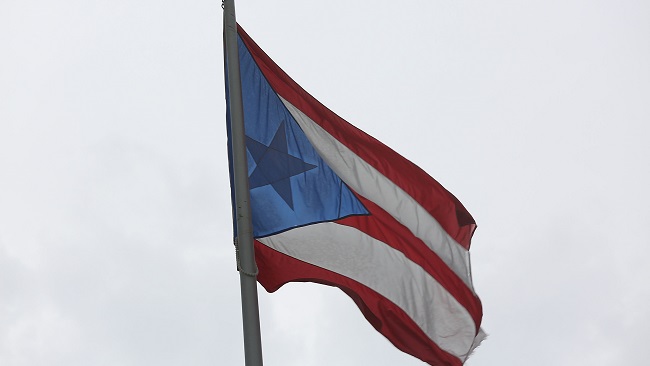
While Puerto Rico is best known for its vacation spots, crippling debt crisis and the Zika virus outbreak, many Americans may not realize the small island is actually an unincorporated U.S. territory. Like any other state, Puerto Rico’s government is organized around executive, legislative and judicial branches — yet aside from a single non-voting delegate in the U.S. House, the nearly 3.5 million people who live there have no representation in American politics. Hence why newly elected congressional representative Jenniffer Gonzalez wants to make Puerto Rico the 51st state by 2025.
According to Fox News, Gonzalez filed a bill at the beginning of the 115th Congress that — if passed — would lay the groundwork for a referendum granting Puerto Ricans one of two choices: statehood or independence. Gov. Ricardo Rossello, who also just took office, agreed with Gonzalez’s sentiments in his inaugural speech on Monday, which reiterated his campaign’s primary focus on achieving one of the desired vote’s two options for his constituents:
“The United States cannot pretend to be a model of democracy for the world while it discriminates against 3.5 million of its citizens in Puerto Rico, depriving them of their right to political, social and economic equality under the U.S. flag,” Rossello said in his inaugural speech, delivered in Spanish. “There is no way to overcome Puerto Rico’s crisis given its colonial condition.”
Whether or not Rossello’s campaign promises and Gonzalez’s filed bill will achieve any of this, however, remains to be seen. Puerto Rico has been a U.S. territory since the latter won it from Spain following the Spanish-American War. Citizenship was granted to island residents nearly 20 years later in 1917, though they didn’t get their own government until 1952. The situation settled for a time, but that all changed when the results of a 2012 referendum determined 54 percent of voters were no longer satisfied with the territorial status. What’s more, 61 percent of those who voted (80 percent of Puerto Rico’s total population) opted for statehood.
Per The Atlantic, the referendum’s high numbers still wasn’t enough to convince the House and Senate committees overseeing it to let each chamber hold a vote. As for Gonzalez’s bill will passing (and triggering its hoped for referendum), the coming Donald Trump presidency has little to say about the matter. The Trump campaign did release a statement ahead of the primaries, declaring Puerto Ricans “should be entitled to determine for themselves their political status.” Yet as the Puerto Rico Report noted, Trump’s alleged support wasn’t as clear cut as Republican rivals Jeb Bush or Marco Rubio — let alone past Republican presidents like Ronald Reagan and George H.W. Bush.
After winning reelection for his Senate seat, Florida’s Rubio hasn’t back down from his support for Puerto Rico in general. (He even unveiled a new plan to help kick-start the territory’s failing economy in December.) Aside from the junior senator’s professed support for the island, however, whether or not he — or any other elected officials — will help Gonzalez and Rossello in in their efforts has yet to be determined.
(Via Fox News, New York Daily News and The Atlantic)
